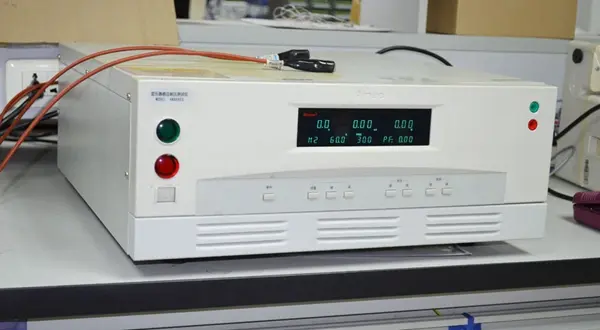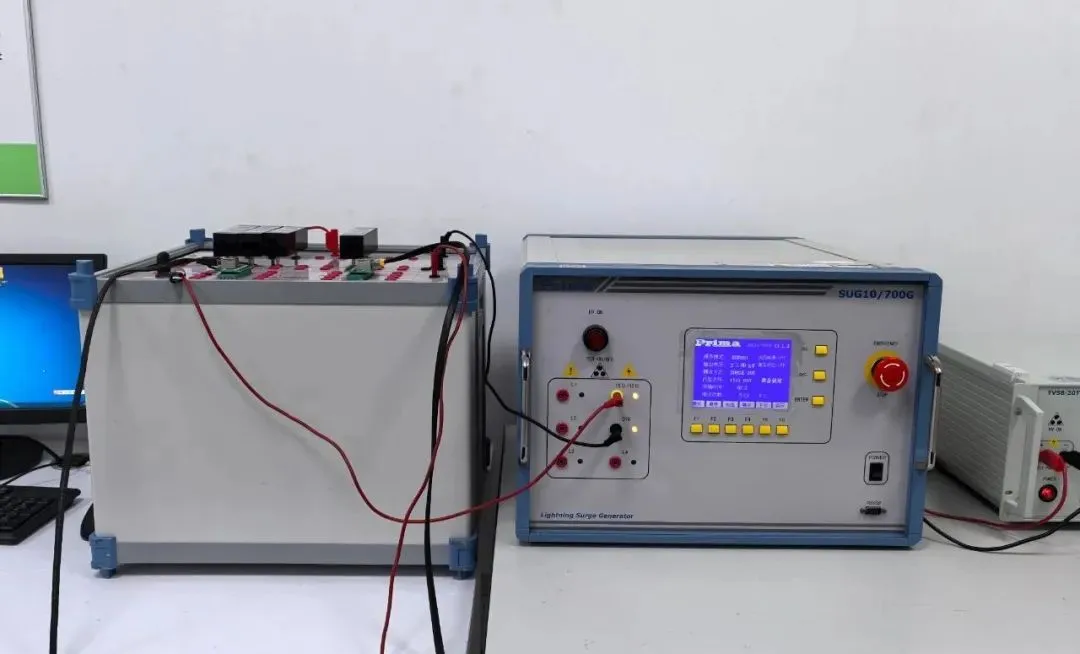
Electronic Product Reliability Testing Laboratory
The reliability laboratory is one of the JJR laboratories in China. It has been accREDited by the China National Accreditation Service for Conformity Assessment (CNAS), China Metrology Certification (CMA), and the International Safe Transit Association (ISTA). It operates two large test bases located in Shenzhen and Guangzhou, covering mULtiple sectors such as environmental, climatic, mechanical, life cycle, failure analysis, and environmental stress screening. With a team of experienced industry experts, the lab provides customized services to clients. The laboratory is equipped with advanced testing equipment, comprehensive test standards, and excellent engineering capabilities, meeting various international and domestic testing standards such as IEC, ISO, EN, MIL-STD, SAE, ASTM, ISTA, JIS, IPC, JEDEC, GM, and NISSAN. It offers comprehensive product reliability testing and verification services to help clients thoroughly understand, analyze, and enhance product reliability.
Laboratory Capabilities
Climatic Environmental Testing
Climatic environmental testing simulates real climate conditions or reproduces their effects to demonstrate the product's ability to remain intact and functional under specific climatic conditions. The effects on the product may include heat aging, softening, sublimation, expansion, embrittlement, reduced mechanical strength, physical shrinkage, moisture absorption or adsorption, cheMICal reactions, corrosion, increased conductivity in insulators, leading to product cracking, insulation damage, physical damage, mechanical failure, and increased mechanical stress.
Testing items and standards:
- Low Temperature: IEC 60068-2-1; EN 60068-2-1
- High Temperature: IEC 60068-2-2; EN 60068-2-2
- Constant Damp Heat (Temperature & Humidity): IEC 60068-2-78; EN 60068-2-78
- Cyclic Damp Heat: IEC 60068-2-30; EN 60068-2-30
- Temperature Change (Rapid Temp Change/Thermal Shock): IEC 60068-2-14; EN 60068-2-14
- Temperature/Humidity Combination Cycle: IEC 60068-2-38; EN 60068-2-38
- Salt Spray (Cyclic Salt Spray): IEC 60068-2-11; EN 60068-2-11; ISO 9227; ASTM B 117
- IP Protection (IP Code): iec 60529; EN 60529
- Low Pressure: IEC 60068-2-39:2015
- Fluorescent UV Lamp (UV Test): ISO 4892.3; ASTM G 154; ASTM D 4674
- Xenon Lamp: ISO 4892.2; ASTM G 155
- Artificial Sweat: ISO 3160-2
Mechanical Environmental Testing
Mechanical environmental testing is an effective method for evaluating the resistance of components, parts, and complete systems to mechanical stress in anticipated storage, transportation, and usage environments. The effects on products may include structural damage (e.g., deformation, cracks, or breakage), functional failure (e.g., poor contact, relay malfunction), and process damage (e.g., loosened screws or connectors, solder joint failures).
Testing items and standards:
- Vibration: IEC 60068-2-6; EN 60068-2-6; IEC 60068-2-64; EN 60068-2-64; ISO 2247
- Shock: IEC 60068-2-27; EN 60068-2-27
- Bump: IEC 60068-2-27; EN 60068-2-27
- Drop: ISO 2248; IEC 60068-2-31
- Impact (IK Protection): IEC 62262; IEC 60068-2-75
Combined Environmental Testing
Combined environmental testing simulates the comprehensive environmental stress that electronic products experience during transportation, storage, and use, reflecting their adaptability to the combined effects of temperature, humidity, and vibration. It exposes product defects and is an essential test for new product development, prototype testing, and product qualification.
Testing items and standards:
- Three-Axis Combined Testing: IEC 60068-2-50; IEC 60068-2-51
- ISTA: ISTA 1A, 1B, 1C, 1D, 2A, 2B, 2C, 3A, 3B, 6A (Federal), 6A (Amazon)
- Railway Equipment: en 50155; IEC 60571; iec 61373
- Automotive Electronic Equipment: ISO 16750-3; ISO 16750-4
- Computer Products:
- Handheld Information Devices:
Aging and Life Testing
Aging and life testing simulates various conditions such as high temperatures or harsh environments to evaluate the stability and reliability of electronic products. It is an important process for improving product quality and competitiveness, allowing manufacturers to detect defective items or components, quickly identify issues, and resolve them effectively.
Testing items and standards:
- Mean Time Between Failures (MTBF):
- Cable Flexing Test: EIA-364-41
- Insertion/Withdrawal Force Test: EIA-364-13
- Durability Test: EIA-364-09
Email:hello@jjrlab.com
Write your message here and send it to us
 Global Certification Guide for Lithium Batteries
Global Certification Guide for Lithium Batteries
 Compliance of Amazon 18650 Lithium Battery Product
Compliance of Amazon 18650 Lithium Battery Product
 What is CE Certification and EU Authorized Represe
What is CE Certification and EU Authorized Represe
 What Are the Lithium Battery Safety Tests?
What Are the Lithium Battery Safety Tests?
 What is the EN 61326-2-3 Standard?
What is the EN 61326-2-3 Standard?
 Why Do Smart Sockets Need IEC 60884 Certification?
Why Do Smart Sockets Need IEC 60884 Certification?
 Why Retest the Device if the 5G Module Already Has
Why Retest the Device if the 5G Module Already Has
 Overview of IEC 62087 Test Standard
Overview of IEC 62087 Test Standard
Leave us a message
24-hour online customer service at any time to respond, so that you worry!




